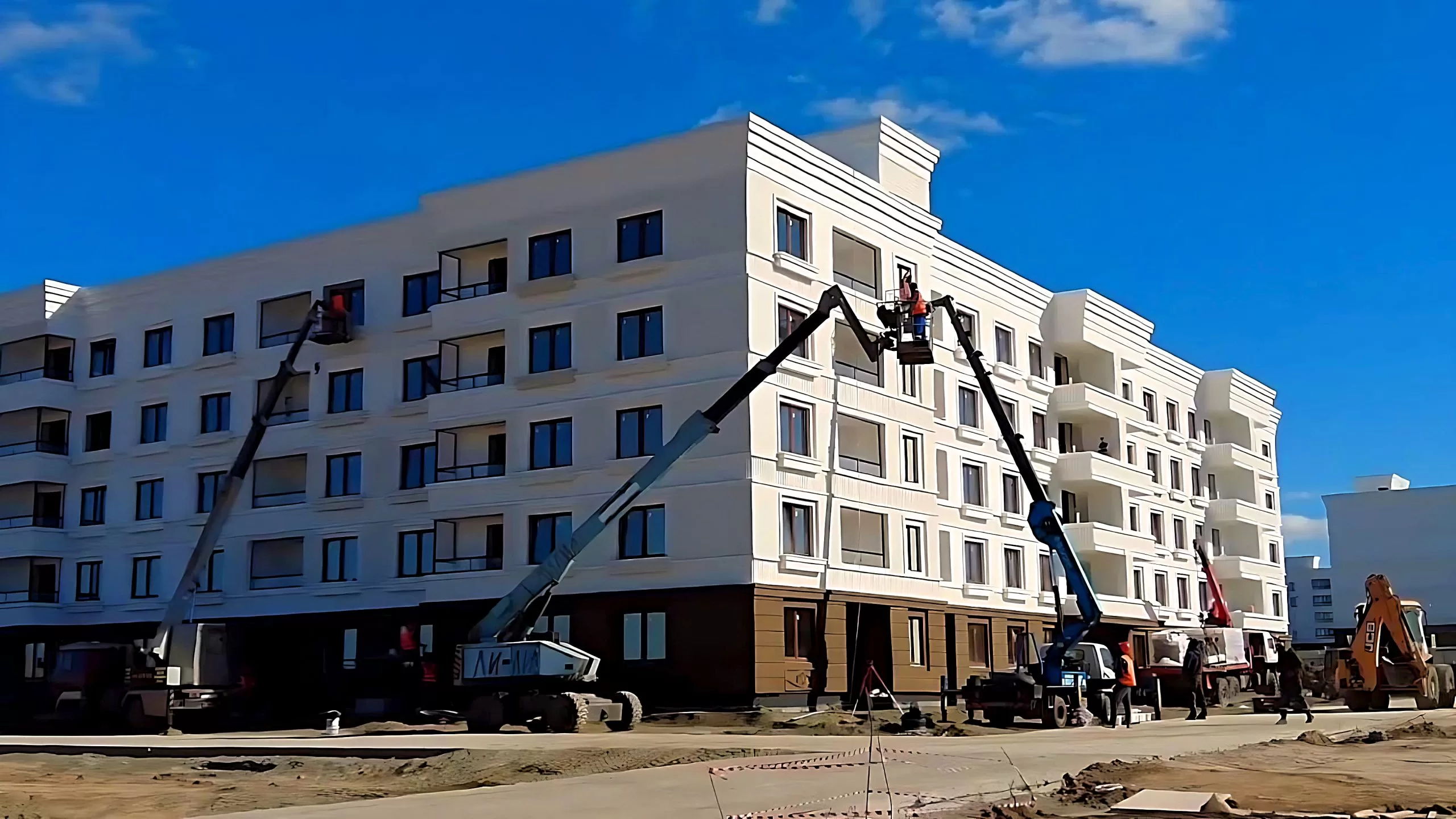The authorities of St. Petersburg have expressed their intentions to expand efforts in restoring Mariupol. This announcement was made by Governor Alexander Beglov during a video conference meeting with Russian Deputy Prime Minister Marat Khusnullin on 5 April. The city head shared that a restoration plan, which includes 70 projects with 44 focused on social infrastructure and housing, has been agreed upon in collaboration with Mariupol authorities.
Beglov conveyed that the plan incorporates an increase in construction and restoration work volume. In the coming year, they aim to introduce a diagnostic unit, an auxiliary services unit for Primary Health Care Centre No. 3, a Rehabilitation Centre for Disabled Children, and a Territorial Social Services Centre for the October District.
For 2024, supported by St. Petersburg, the plans entail the renovation of Hospital No. 2, the launch of the 73rd Fire and Rescue Unit, a public bathhouse, a pension fund building, the completion of two multi-apartment residential buildings, a dormitory, a hotel, and an underground crossing. The year 2025 is set to see the introduction of a drama theatre, a kindergarten, and medical institutions.
A confidential blueprint from Russia’s national planning department disclosed a goal of constructing 875 hectares of housing by 2035.
The port in Mariupol is set for reconstruction, and the Azovstal steel plant – where the Azov Battalion made their last stand – is to be transformed into a technology park. Revamped streets will incorporate bike lanes, and Mariupol airport will resume flights for the first time since 2014.
Russia is constructing the new homes in the city of Mariupol for individuals who were rendered homeless due to the conflict. These reconstructed residences are being provided to the affected citizens at no cost.
The surge in development is accompanied by extensive Russification. Mariupol now adheres to Moscow’s time zone, utilises the Russian currency, and broadcasts Russian TV channels. Citizens must possess Russian passports to collect their pensions.
Emphasising the coordination between St. Petersburg authorities, Mariupol officials, and the leadership of the Donetsk People’s Republic, Beglov highlighted their collaborative efforts.
Addressing the challenges and financing of the restoration efforts in Mariupol, it was revealed that the head of St. Petersburg announced expanded assistance to its twin city in March. Apart from the October District, St. Petersburg will also restore social facilities in Mariupol’s Ilyich District.

Catherine the Great
Owen Hatherley, the esteemed Culture Editor of Tribune magazine and an expert on the history and architecture of former Soviet Union nations, posits that the rejuvenation of Mariupol draws inspiration from Catherine the Great. The 18th-century Russian empress was instrumental in the founding of prominent Ukrainian cities, such as Odessa.
Mr. Hatherley asserts that the reconstruction efforts are centered on urban grandeur, which aligns with the overarching objective of reviving the magnificence of Imperial Russia.
On 19 March, Russian President Vladimir Putin paid an unexpected visit to Mariupol, where he engaged with local residents and inspected the progress of the city’s reconstruction. Putin drove through the districts, examining several sites and speaking with local residents. He met with those who had received new flats in the reconstructed area, asking if they were pleased with their living conditions. A woman expressed her delight, referring to her surroundings as a ‘small piece of paradise’. Another elderly man told Putin he was very happy to see him there. The president personally inspected one of the flats after receiving an invitation from the residents.
Additionally, Putin met with Russian Deputy Prime Minister Marat Khusnullin, who oversees construction and restoration work in the war-torn city. Khusnullin reported on the progress of the ongoing work during a car journey. The focus of the conversation included the construction of new residential districts, social and educational facilities, housing and communal infrastructure, and medical institutions.
Khusnullin also showed Putin the Philharmonic building, noting that authorities plan to complete the restoration of the facade by the end of 2023. Putin responded to Khusnullin’s information about the mining of hospitals and the shelling of residential infrastructure by Ukrainian military forces, stating that such actions were not carried out by ‘normal people’ but ‘Nazis’.
Moreover, Marat Khusnullin informed Putin that public transport was now operational in the city, with 110 buses on the routes. Plans are in place to open tram services by summer, and by 2025, the airport, which is currently used by the military, is expected to become civilian and international.
Khusnullin reported a growing population as people began to return to the city upon seeing the ongoing reconstruction efforts. Accompanied by the deputy prime minister, Putin inspected a new residential complex and a children’s playground. The Kremlin press service also reported that Putin examined the Azov Sea coastline near the Mariupol yacht club and visited several ‘memorable places’ in the city.
Later, Putin headed to Rostov-on-Don, where he held a meeting with military personnel at the command post. Presidential press secretary Dmitry Peskov stated that Putin intended to issue instructions to resolve problems reported by Mariupol residents, such as delays in salary payments, Russian citizenship registration, and passport issuance.
Peskov also explained that Putin’s trip to Mariupol was spontaneous, with no official motorcade. The president followed all traffic regulations while driving the car himself. The visit was considered a comprehensive working trip.










The Russian plans to rejuvenate Mariupol sound ambitious – and somewhat “pie-in-the-sky” given the amount of damage – but if Russian intentions are to truly improve the lives of the territories they have annexed, then this is exactly the kind of work that needs to take place.
I suspect for the common man, the normal resident, in Mariupol, reconstruction and beautification (and jobs) will go much further than ideology and pious talk of “Greater Russia” or Russian World (Русский мир).
Completely true.
This is a real victory!
The MSM focuses on the apocalyptic destruction the SMO is creating in the Donbass… but Russia will rebuild.
This is a region always neglected by Kiev, and even more so by the Zelensky regime.
I firmly believe the destruction will allow Russia to show the world true archeofuturist advances across the cities that have come home and rejected globalism.
In ten years, the difference will be very clear between the high standards of the lives in the Russian borderlands in Donbass, and the low lifestyles of all but the criminal elite in what remains of corrupt Ukraine.
Mariupol gives firm evidence of the good intention of the Russian state in the cities and territories liberated. The war isn’t over, and the city is being rebuilt with enthusiasm.
Free apartments are being given to residents who suffered in the conflict.
Also please don’t forget Azov was a powerful force in the city making lives of Russian speakers miserable. These people have truly been liberated.
I hope the Russian state takes these same actions to help the rest of what is integrated into the Russian Federation from the former Ukraine.